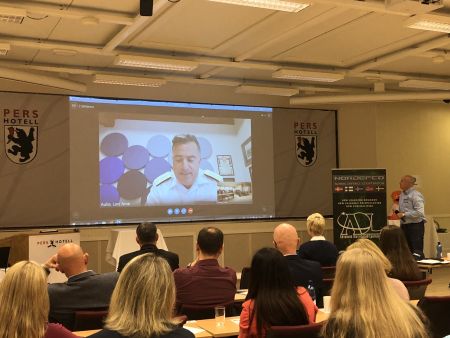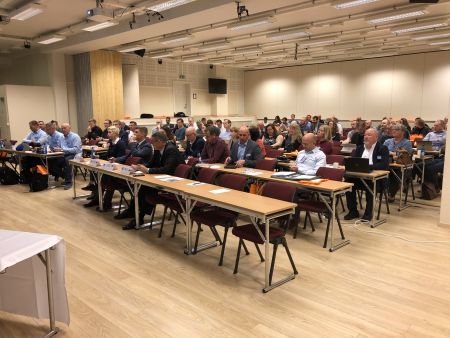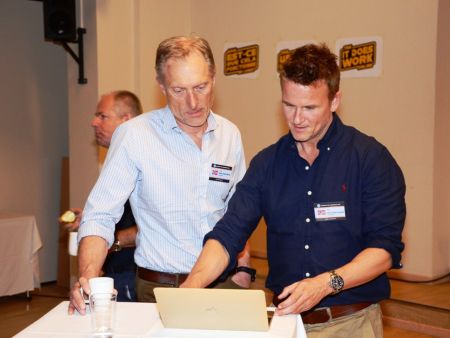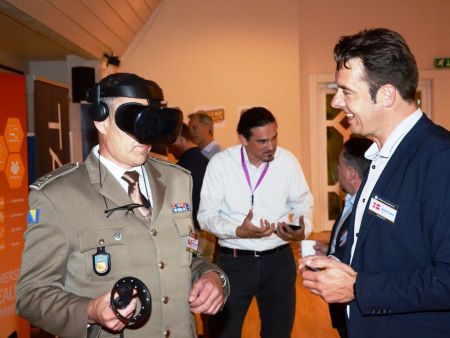Dr. Tom Archibald
Technical Director
Intelligent Decision Systems, Inc (IDSI), United States
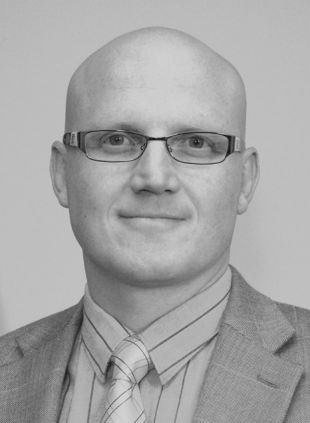
Learning science and the brain. Have anything changed?
Commander Lasse Elvemo
NoDUC / Naval Academy, Norway

How to do active learning online?
The Norwegian Naval Academy is outsourcing the second year of our logistics bachelor. Molde university college will deliver ADL on 8 subjects. This has a lot of practical implications, it's not just running some videos. How do we ensure Learning, how do we Ensure officers Development in parallel?
Dr. Jenna Vekkaila
The Finnish Defence Forces, Finland

Pedagogically sound ways of implementing digitality - What is the challenge?
Our everyday lives and activities from societal to individual levels are increasingly digitally mediated. However, the experiences from the educational settings raise a doubt whether the digital potential has been implemented in pedagogically meaningful ways (OECD, 2015; Sanders & George, 2017). Why it is so? How can we make full use of the digital technologies to add educational value?
First, we will tackle the Why -question. I argue that even though we have identified the most obvious change; the ever-evolving technologies constantly being introduced into teaching, we have not yet satisfyingly responded to the most ground breaking one: the changes in the way we understand learning and knowing. The shift towards collaborative knowledge creation has significant consequences on learning processes, dynamics, and practices as well as the way we interact. Here we come to the How -questions: I will raise the model of Pedagogical Infrastructure (Lakkala, 2008) into the discussion as a holistic pedagogical approach for educators to design blended and digital learning environments. I will provide practical examples, and challenge the audience to not only look at the technical infrastructures but above all to focus on constructing high-quality social, epistemological and cognitive infrastructures in our hybrid learning environments.
Development Director Kalle Huhtala
Edita Publishing Oy

Clicks save blood - designing an interactive learning course for military symbols
Military has its own visual language that is used for communicating plans and operations. This language skill is crucial to any force taking part in international co-operation. To support learning this military language and improve the readiness of the military reserve force, we have developed a highly interactive eLearning course. In this presentation I will demonstrate the course itself and describe how we designed its learning goals, structure, gamification approach, reporting and analytics and dozens of H5P-based drill exercises including speech input and advanced map exercises. The course utilizises Moodle LMS's skills and competencies functionality. I will also give an overview of the cost-effective tools available for such an eLearning content production. Continuous development of open source and low-cost media and content tools lowers production costs and gives designers more room to enrich learning experiences. The presentation itself is gamified and will include a location based learning game that can be played outdoors.
Mr. Morten Wenstad
EON Reality Norway AS
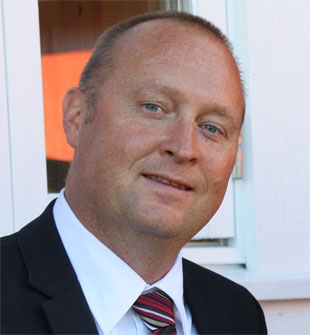
Training Soldiers using AVR
NATO´s Center of Excellence-Cold Weather Operations (COE-CWO) is located at Terningmoen in Elverum and is a part of the Norwegian Army Land Warfare Center. The Center has started an activity to investigate how Augmented and Virtual Reality solutions can minimize the time and resources spent on training. EON Reality Norway AS has been tasked to develop a first version of a AVR training solution for the Norwegian Armed Forces Multi Stove, MSR XGK EX. The developed solution has gone through minor initial tests that indicates good results regarding reduced time spent to ignite the stow without an instructor in the loop. The training solution has 4 separate lessons; a) Introduction to the system and its components, b) procedures to ignite the Multi Stove, c) maintenance and d) troubleshooting. COE-CWO and EON Reality Norway would like to present their common experiences from the end user-oriented development process, demonstrate how the training session is executed, the experiences so far and how this solution can be further elaborated to other relevant training activities for COW-CWO.
Sergeant 1 class Martin Dalen
Sergeant 1 class Martin Dalen works at the NSWW*/NATO COE CWO** as the Norwegian armed forces SME*** on cold weather soldier equipment. He is educated as a mechanic and a mechanical engineer, and has served 19 years in the armed forces in a variety of positions in units ranging from Telemark Batalion/Recce Sqn to the Norwegian Defence Logistics Organisation."
*Norwegian School of Winter Warfare
**NATO Center of Excellence Cold Weather Operations
***Subject matter expert
Mr. Alexander Giles


Defence consultant for over 20 years. Have been working on digital training for the last 5 years.
Transforming Maritime Training: Lessons From The Cruise Industry
Over the last 5 years the cruise industry has revolutionised how it goes about crew training. Digitising COLREGS, introducing app based learning and check lists. E-Learning courses, and VR/AR are all being experimented with. The military are a long way behind in many of these areas, so what lessons can be be learnt.
Major Johannes Hobaek
Norweigan Home Guard

Project App-Builder Mlab
The purpose of the project is to equip the Norwegian Home Guard with an app builder (Mlab), which provides personnel in the Home Guard without any programming knowledge the opportunity to create and share professional, interactive professional apps.
The program is free to use and can be shared with all branches of the Norwegian Armed Forces.
The project were successfully executed in the period sept 2018 – feb 2019, two applications have been made so far.
Potential benefits that will be realized from the project:
- The system puts people in the Home Guard, without special training, capable of designing, compiling, and updating professional mobile apps. You do not need to rent / buy services from companies outside the armed forces.
- The Home Guard can develop an unlimited number of apps at no extra cost. When outsourcing to a civilian company, you have to pay for each app to be developed, and updates.
- More efficient sharing of updated information and knowledge. For example, lessons, routines, and procedures that can be updated at irregular intervals.
- The Home Guard can work more efficiently and with better precision.
- Reduced expenses for printing booklets and memos in paper format. In addition, it avoids that outdated versions remain.
- Release of capacity at the educational center for HVSKS.
- E-learning, eg demonstration videos of procedures and techniques can be made available to the entire organization on mobile.
- By using questionnaires, one can easily collect information from a large group. This may be relevant when subject groups and project groups work.
- Easier to standardize procedures and techniques.
- Ability to complete courses or parts of courses on the app.
Mr. Marcin Jóźwiak
Poland ADL Partnership Center
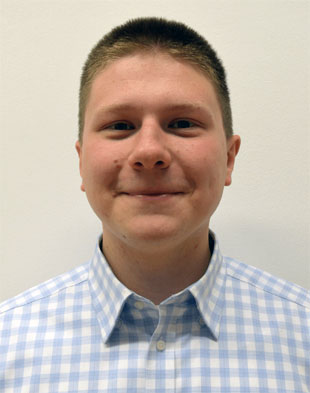
Subtitled audio-visual content as a learning tool
This paper presents recent research focused on the role of subtitled audio-visual material on foreign language acquisition. The author distinguishes various types of subtitled audio-visual content and comments on their usefulness and possible impact on the learning process, presenting other researcher’s opinions and his own perspective. Different types of content (videos, games) are categorized and properly commented regarding their influence on different language skills and competences. Also, the author shows ways the learners can experience such content for learning purposes. Possible application of such methods for advanced distributed learning is investigated, with LMS ILIAS used a base for exercises.
Major Niclas Ljung
Swedish Armed Forces

Integrating Advanced Distributed Learning into multinational exercises
Armed forces around the world face similar challenges regarding exercises and live training. The context is increasingly multinational; while operations and supporting systems are more complex, requiring extensive pre-training. To thrive in these volatile, complex and evolving security environments, military personnel also require an expanding range of competencies and at higher levels of proficiency, and the quick acquisition of new knowledge and skills to confront novel multi-domain challenges. In resource constrained systems, this outcome must be achieved without increasing training and education time or costs. Operational integration of Advanced Distributed Learning (ADL) into multinational exercises is one step toward this goal.
As computer aided exercises increase in number and scope and educational systems go online, the ability to participate in and to produce ADL training and education becomes a critical capability to reinforce professional integrity, legal and ethical norms, interoperability and operational capability.
ADL has been a supportive learning concept in the Viking series of computer-aided exercises since 2003. The ADL-concept for Viking 2018 expanded the scope and scale of learning resources to include assets of both pre-training and operational value, and highlighted analytics on a common dashboard from both the Learning Management System and the Command and Control system. Thus, it is possible to compare data from training with data from the execution phase of the exercise, including data from the designated evaluation team and exit interviews with participants.
Based on previous lessons identified and data from Viking 18, this presentation will show that ADL, blended into a computer-aided exercise, produces more effective and efficient outcomes. To bolster the effort of integrating ADL into future exercises the presentation will also describe an outline for a multiyear design-based strategic plan to achieve operational integration of ADL across a suite of joint and national exercises to support and enable readiness.
Keynote speakers: 45 mins.
Speakers (Auditorium): 30 mins.
Parallel sessions: 40 mins.
Workshops: 2x40 mins. or
Workshop: 90 mins.
INCLUDING QUESTIONS!
Exhibition in every break






